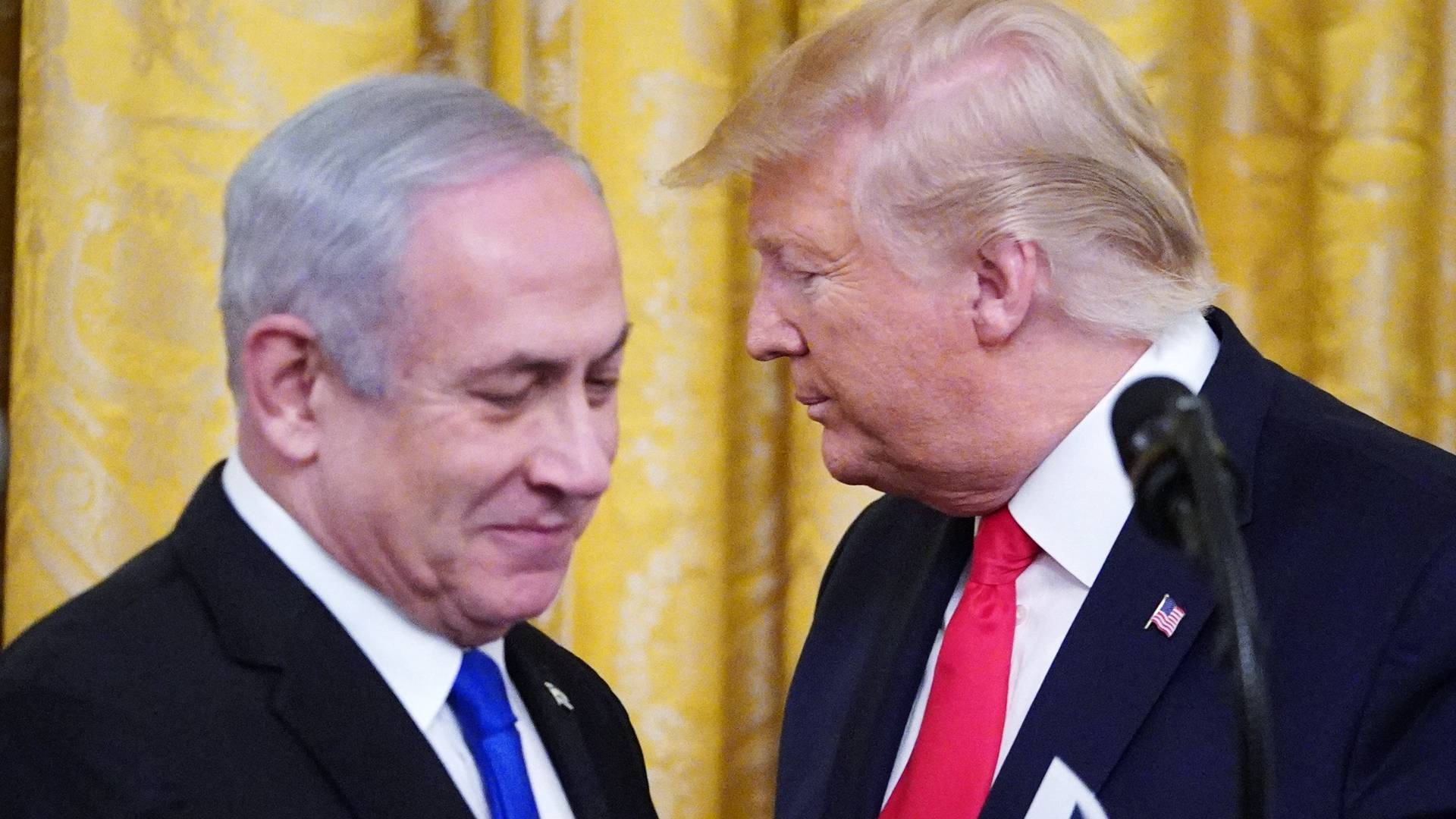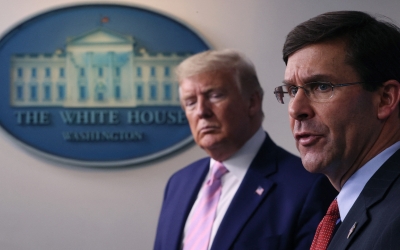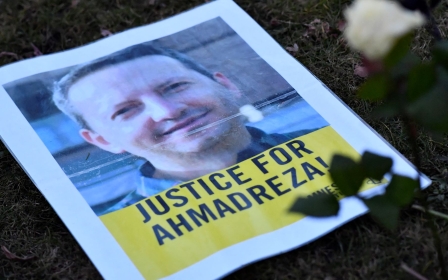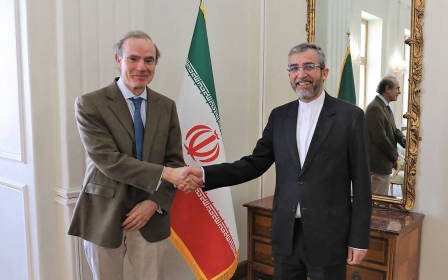Netanyahu urged Trump to strike Iran, ex-Pentagon chief's new book suggests

Redacted quotes in a new book by former US defence secretary Mark Esper suggest that former Israeli Prime Minister Benjamin Netanyahu called on US President Donald Trump to take direct military action against Iran's nuclear programme.
In the book, A Sacred Oath: Memoirs of a Secretary of Defense During Extraordinary Times, Esper notes that Trump seemed firm in his commitment not to enter a war with Iran, the Haaretz newspaper reported on Tuesday.
He writes: "The president often had others in the room, and foreign leaders like Israeli Prime Minister Benjamin Netanyahu, telling him [REDACTED]."
Several sections of the book have been redacted by the US Department of Defence, and Esper is currently suing the Pentagon over this, charging that "significant text is being improperly withheld from publication … under the guise of classification".
Following the redacted quote, Esper writes: "Netanyahu would say this to me when I met with him, so I was confident he was telling Trump the same thing."
"In my view, that seemed like a big bet to take, especially when there wasn’t a pressing need to take it anytime soon," Esper writes.
He goes on to cite Israeli media reports and Israeli defence officials saying that Iran was still two years away from assembling a nuclear weapon.
While the quote has been redacted to make it unclear as to whether Netanyahu had indeed suggested to Trump that the US militarily attack Iran's nuclear programme, Esper's book comes at the same time as another upcoming book by journalists Susan Glasser and Peter Baker that makes the same claim.
According to the two journalists, Netanyahu implored the Trump administration to attack Iran from the moment it was clear that the election results had gone against Trump. General Mark Milley, chairman of the Joint Chiefs of Staff, is quoted as saying: "If you do this, you're gonna have a fucking war."
Trump's reelection campaign and killing Soleimani
Esper's book chronicles his tenure in the Trump administration, which saw tensions between the US and Iran reach near boiling point several times, most notably with the January 2020 assassination of Iranian General Qassem Soleimani, who led Iran's Islamic Revolutionary Guard Corps.
Middle East Eye reported earlier this week on several excerpts of Esper's book that had been released, in which he wrote that Trump had been vying to strike an Iranian official.
The desire to do so was linked to political gain, according to the book, with Esper believing that Trump's team wanted news that could be used to aid his 2020 reelection bid.
In addition to making a strong line against Iran a key part of his administration's foreign policy, the former president used it as a platform for his failed bid at winning the White House for a second term.
Esper wrote that Milley told him that Robert O'Brien, Trump's national security adviser, had called to say that "the president wanted to strike a senior military officer who was operating outside of Iran".
"But why now? What was new? Was there an imminent threat? What about gathering the national security team to discuss this?
"Milley said he was 'stunned' by the call, and he sensed that O'Brien 'put the president up to this,' trying to create news that would help Trump's re-election."
Esper says he refused to carry out such an action without a written order from Trump, writing that it was "fraught with a range of legal, diplomatic, political and military implications, not to mention that it could plunge us into war with Iran".
Trump's rhetoric led to fears that he might attempt to provoke a war with Iran as the 2020 presidential election neared.
Esper served as defence secretary from June 2019 to November 2020, when he was fired over a range of differences on policy issues.
Middle East Eye propose une couverture et une analyse indépendantes et incomparables du Moyen-Orient, de l’Afrique du Nord et d’autres régions du monde. Pour en savoir plus sur la reprise de ce contenu et les frais qui s’appliquent, veuillez remplir ce formulaire [en anglais]. Pour en savoir plus sur MEE, cliquez ici [en anglais].





